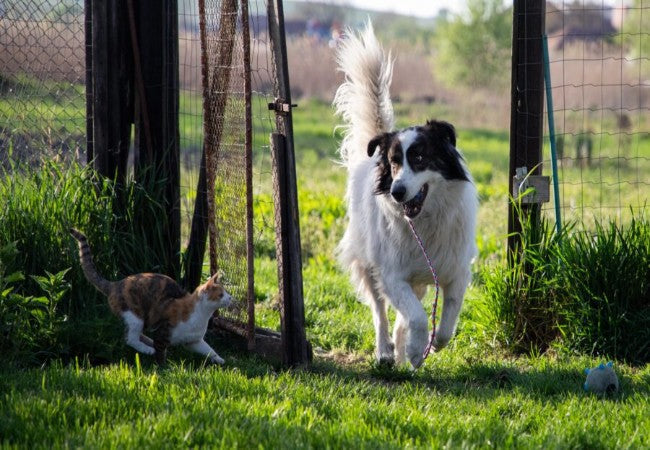Herb 'N' Living: A Vet Approved Guide to Growing a Pet Friendly Herb Garden in 2025 🐾

In this article
Herb 'N' Living: A Vet Approved Guide to Growing a Pet Friendly Herb Garden in 2025 🐾
By Dr. Duncan Houston BVSc
Integrating a pet-friendly herb garden into your home not only enhances your living space but also offers natural remedies to support your pet's health. 🐶🐱 Let's explore how to cultivate a safe and beneficial herb garden for your furry companions in 2025. 🧠
🌱 Why Grow a Pet-Friendly Herb Garden?
Many pets instinctively seek out plants that aid in digestion or provide other health benefits. However, typical household plants may not be safe for consumption. By cultivating a garden with non-toxic, beneficial herbs, you provide your pet with natural options to support their well-being.
🌿 Vet-Approved Herbs for Your Garden
Here are some herbs that are both safe for pets and offer health benefits:
- Peppermint: Aids in digestion and alleviates nausea. Easy to grow in moist soil with partial shade. Regular trimming encourages healthy growth.
- Milk Thistle: Supports liver health. Thrives in various soil types and sunlight conditions. Remove flowering heads to prevent it from becoming invasive.
- Astragalus: Boosts the immune system and aids in digestion. Requires sandy soil and seed scarification before planting.
- Wheatgrass: Provides essential nutrients and aids in digestion. Simple to grow indoors; ensure a fresh supply by rotating plantings.
- Barley Grass: Similar benefits to wheatgrass and equally easy to cultivate.
- Rosemary: Acts as an immune booster. Prefers well-drained soil and regular pruning to prevent root rot.
Note: While garlic grass is mentioned as an immune booster, garlic cloves are toxic to dogs and cats. Only the grass that grows from the clove may be nibbled on by cats, but it's best to consult your veterinarian before introducing it to your pet's environment.
🛠️ Tips for Cultivating Your Herb Garden
- Soil Selection: Use rich, organic soil to promote healthy growth.
- Sunlight: Ensure your garden receives adequate sunlight based on the specific needs of each herb.
- Watering: Maintain consistent moisture levels without overwatering to prevent root rot.
- Pruning: Regularly trim herbs to encourage new growth and prevent overgrowth.
- Rotation: Rotate plantings, especially for grasses like wheatgrass, to provide a continuous fresh supply.
⚠️ Safety Considerations
Always ensure that the herbs you plant are non-toxic to your specific pet species. Some herbs beneficial to dogs may not be safe for cats and vice versa. Consult with your veterinarian before introducing new plants to your pet's environment.
📱 Enhance Your Pet's Health with Trusted Resources
For additional support and personalized guidance, consider these resources:
- Ask A Vet: Connect with veterinary professionals for expert advice. 🩺
Empower your journey as a pet parent by downloading the Ask A Vet app today and ensure your furry friend thrives in 2025 and beyond! 📲🐾






